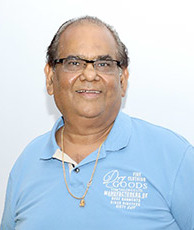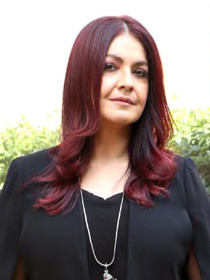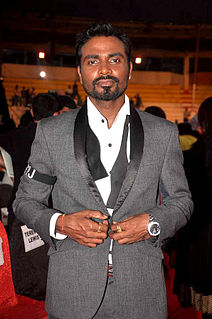A Quote by Karan Wahi
The basic idea of making this film was that even if one person is touched by the thought in the film, then my job as a storyteller is done.
Related Quotes
When you're making a film, you don't really have time to consider what the whole of your film is. And then, when you're releasing your film and promoting your film, you're looking at it in a different way. Then, as you move away from it, you start to look at it objectively and think, 'What could I have done better?'
I have seen this whole process of films releasing, becoming hits or flops, for too long now to expect things to do well. If I expect a film to do well, then it is for somebody else's sake, not for my own. I do my work, and if you feel that my work is improving from film to film, then I have done my part of the job.
During the entire process of making this film I never thought about whom I was making it for. I always thought that the film was for me, but I didn't think of any of that. I just did what I thought I had to do. I didn't think, "This is what children are going to think" or "This is what adults will understand."
The core plot of 'Mercury' is so gripping that when I thought of making it as a silent film, it only made it more interesting. Once I finished writing the first draft, making a silent film that's both thrilling and engaging seemed possible. When the film team read the final script, they felt the same.
I was fascinated by making a submarine movie, inspired by the Kursk disaster. This idea of being trapped down at the bottom of the sea seemed so terrifying. I was very interested in making a sub film which wasn't a military film. You think, Well, why are they there, then, if they're not in the military? Oh, well, they must be looking for treasure.

































